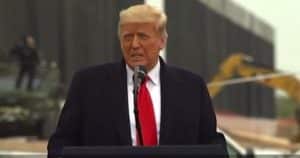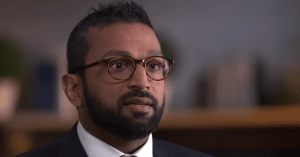Trump facing criticism from Nikki Haley over Ukraine stance
Haley, who has been vocal in her support for Ukraine, has expressed her disapproval of Trump's stance, especially his comments targeting Ukrainian President Volodymyr Zelensky. Trump accused Zelensky of exploiting American aid over the past few years and negatively impacting Ukraine's leadership. The situation escalated as Trump harshly criticized Zelensky, labeling him a "dictator" due to his decision not to hold elections amidst martial law.
Haley Responds to Trump’s Claims
Trump's recent rhetoric seems to coincide with significant U.S. diplomatic activity aimed at peace talks with Russia, notably excluding Ukraine from discussions held in Saudi Arabia. This has sparked concern among some U.S. leaders, as Trump's statements have been described by Haley as echoing "classic Russian talking points." She firmly believes such language could undermine international efforts to address the crisis in Ukraine.
Additionally, Trump's critiques included alleged misrepresentations of Zelensky's approval ratings, prompting a strong rebuttal from Zelensky himself. In response, Zelensky accused Trump of being swayed by Russian disinformation. A poll counters Trump’s claims, revealing that 57% of Ukrainians support their president, reflecting a majority trust in his leadership.
Amidst these developments, Haley has reaffirmed her endorsement of U.S. support for Ukraine, including its prospective NATO membership. Her statements demonstrate a clear divergence from Trump's approach, stressing the importance of standing with Ukraine during this conflict.
Political Figures Condemn Trump’s Remarks
Trump's comments have also drawn criticism from other prominent political figures, including former Vice President Mike Pence. Pence challenged Trump's narrative by emphasizing the initiation and brutality of the invasion by Russia. He stated, "Ukraine did not ‘start’ this war. Russia launched an unprovoked and brutal invasion.”
This stark reminder of Russia's responsibility in the conflict highlights the significant repercussions of Trump’s rhetoric, potentially complicating the international community's response. On the legislative side, Republican senators have praised Zelensky's leadership, acknowledging his efforts in securing the country amidst the ongoing aggression.
Sen. Thom Tillis commended the Ukrainian president, praising his ability to maintain national unity. “Zelensky has been the right head of state for the time,” Tillis noted, stressing the importance of recognizing the progress made under his leadership.
Implications for U.S.-Ukraine Relations
These events have contributed to a growing rift within U.S. political circles regarding the appropriate approach to the crisis in Ukraine. The divergent opinions among influential figures such as Haley and Pence underscore ongoing debates over U.S. foreign policy and its broader geopolitical implications.
The inclusion of Ukraine in NATO remains a critical issue, with Trump’s comments potentially undermining efforts to foster closer ties between the West and Ukraine. In contrast, Haley’s advocacy for NATO membership reflects a concerted effort to support Ukraine on the international stage.
Moreover, the diplomatic dynamics between the U.S., Ukraine, and Russia bear significant weight on the pursuit of peace. Trump’s rhetoric not only risks alienating Ukraine but could also complicate the already tenuous peace talks.
Continued International Focus Required
As the situation unfolds, the focus remains on fostering a collaborative solution respectful of Ukraine’s sovereignty. The global community continues to navigate the geopolitical landscape, aiming to support Ukraine against Russian aggression.
Ultimately, the statements made by Trump have prompted critical conversations on the U.S. approach to the Ukraine crisis. The emphasis on diplomatic support for Ukraine remains central to efforts to mitigate conflict impacts.
Current circumstances demand strategic alliances and clear communication, as highlighted by Haley and other leaders. Balancing diverse perspectives will remain crucial to advancing an effective resolution in this ongoing foreign policy challenge.




